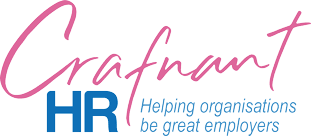HR policies are as crucial to your business as the laws of the land.
They provide your organisation with written guidance on how employees should behave and your expectations.
You can rely on them if you have an issue with an employee, and they can support you in an employment tribunal.
For that reason, it’s incredibly important that your policies are up to date for the year ahead.
Especially as the new Labour Government plans to introduce several different employment-related laws.
The Chartered Institute of Personnel and Development (CIPD) provides comprehensive guidance on HR policies that UK businesses should consider implementing.
While some policies are legally required, others are recommended to promote best practices and align with organisational objectives.
Here are the policies you legally need to have:
- Health and Safety Policy
Mandatory for organisations with five or more employees, to outline the company’s commitment to maintaining a safe working environment. - Disciplinary and Dismissal Policy
Employers must have clear procedures for managing employee misconduct and performance issues. - Grievance Policy
A grievance policy provides a structured process for employees to raise concerns or complaints about workplace issues, ensuring they are addressed promptly and fairly.
Here are the policies you may need to have:
- Equal Opportunities Policy
Promotes diversity and inclusion, ensuring no discrimination based on protected characteristics. - Data Protection and Privacy Policy
Ensures compliance with data protection laws, safeguarding personal information. - Flexible Working Policy
Details the process for requesting flexible working arrangements and the criteria for approval. - Sickness and Absence Policy
Outlines procedures for reporting absences and the support available during sickness. - Bullying and Harassment Policy
Defines unacceptable behaviours and the procedures for addressing such issues. - Code of Conduct
Sets expectations for employee behaviour and professionalism within the workplace. - Internet and Email Usage Policy
Regulates the use of company IT resources to ensure appropriate and secure usage. - Social Media Policy
Guides employees on the appropriate use of social media, especially concerning work-related content. - Drug and Alcohol Policy
Addresses substance misuse and outlines support mechanisms and disciplinary actions. - Parental Leave Policy
Details entitlements and procedures for maternity, paternity and adoption leave. - Whistleblowing Policy
Encourages reporting of unethical or illegal activities within the organisation, ensuring protection for whistleblowers. - Training and Development Policy
Encourages continuous professional development and outlines available training opportunities. - Performance Management Policy
Describes the process for evaluating employee performance, including appraisals and feedback mechanisms. - Compensation and Benefits Policy
Outlines salary structures, bonus schemes and other benefits provided to employees. - Dress Code Policy
Specifies acceptable attire within the workplace in order to maintain a professional environment. - Environmental and Sustainability Policy
Demonstrates the company’s commitment to environmental responsibility and sustainable practices. - Travel and Expenses Policy
Provides guidelines for business travel and the reimbursement of related expenses. - IT and Cybersecurity Policy
Ensures the protection of company data and systems, outlining acceptable use and security measures. - Conflict of Interest Policy
Defines situations that may lead to conflict of interest and the procedures for disclosure and management. - Retirement Policy
Details the process and benefits related to employee retirement. - Redundancy Policy
Outlines procedures and support for employees in the event of redundancies.
We’re here to help
Regularly reviewing and updating these policies ensures that they remain relevant and compliant with current legislation.
For detailed guidance on what policies your business needs in 2025, please get in touch with us today.
